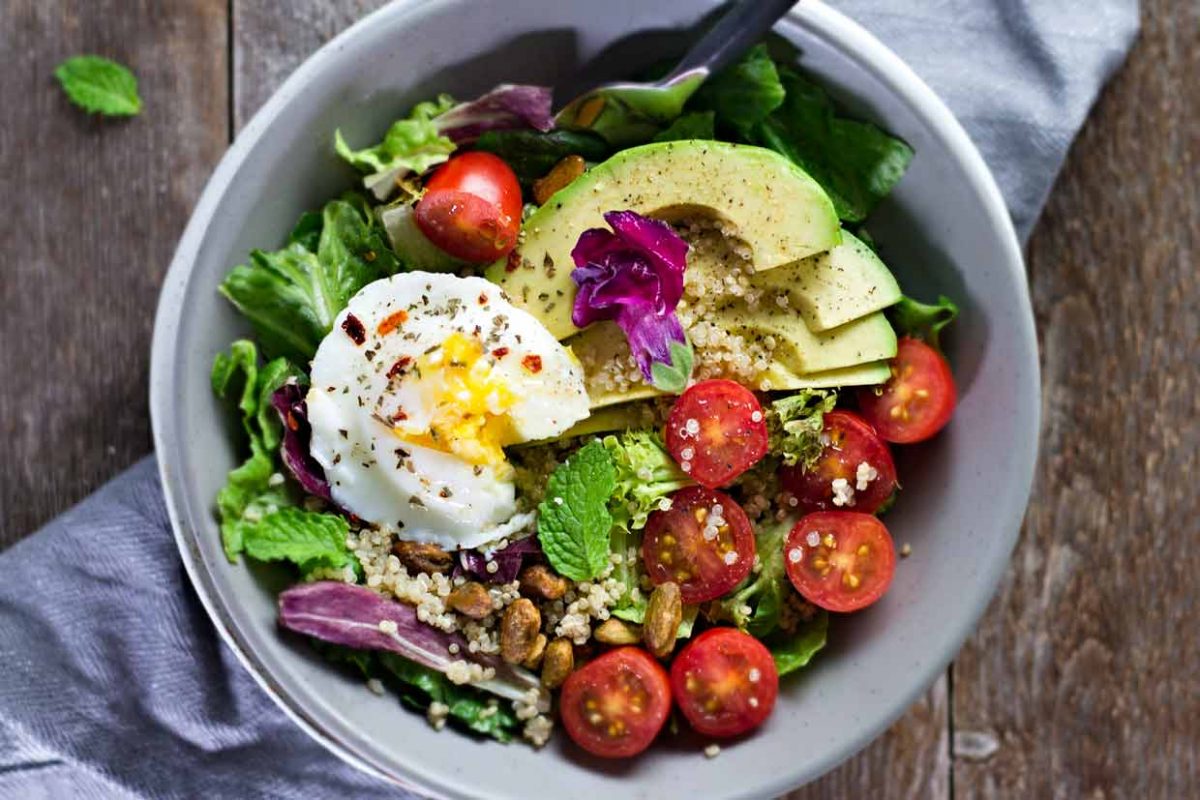Sometimes holiday feasts are just amazing.
It’s not just the abundance of delicious food but also the people, the decorations, and the ambiance.
I don’t know about you, but being surrounded by loved ones, laughing and sharing stories together makes me feel warm and happy inside.
It is way too easy (and common) to indulge on those days.
But it doesn’t always stop there.
Sometimes we overeat on regular days. Or at regular meals. Or, All. The. Time.
Here are three tips to avoid overeating at meals…just in time for Thanksgiving dinner (and leftovers!).
(Psst, turn these into habits and say goodbye to relying on willpower!)
Tip #1: Start with some water
When your stomach is growling and you smell amazingly delicious food it’s too easy to fill a plate (or grab some samples with your bare hands) and dive into the food.
But did you know that it’s possible to sometimes confuse the feeling of thirst with that of hunger? Your stomach may actually be craving a big glass of water rather than a feast.
Some studies have shown that drinking a glass of water 30 minutes before a meal can help reduce the amount of food eaten. And this super-simple tip may even help with weight loss (…just sayin’).
Not only will the water take away the starving feeling (if you actually are hungry) before you get to the buffet, but drinking enough water has been shown to slightly increase your metabolism.
Win-win!
Tip #2: Try eating mindfully
You’ve heard of mindfulness but have you applied that to your eating habits?
This can totally help you avoid overeating as well as having the added bonus of helping your digestion.
Just as being mindful when you practice yoga helps to focus your attention on your breathing and the present moment, being mindful when you eat helps to focus your attention on your meal.
Do this by taking a few deep breaths when you sit down with your meal. Eliminate any distractions around you such as your phone, TV, or computer. As you begin to eat, take smaller bites, eat slowly, chew thoroughly, and savour every mouthful. Notice and appreciate the smell, taste and texture. Breathe.
Check out my quick video with mindful eating tips HERE.
This can help prevent overeating because eating slowly often means eating less.
When you eat quickly it’s easy to overeat because it takes about 20 minutes for your brain to know that your stomach is full.
So take your time, pay attention to your food and enjoy every bite.
Bonus points: Eat at a table (not in front of the screen), off of a small plate, and put your fork down between bites.
Tip #3: Start with the salad
You may be yearning for that rich, creamy main dish.
But don’t start there.
(Don’t worry, you can have some…just after you’ve eaten your greens).
Veggies are a great way to start any meal because they’re full of not only vitamins, minerals, antioxidants, and health-promoting phytochemicals but they also have some secret satiety weapons: fiber and water.
Fiber and water are known to help fill you up and make you feel full longer. They’re satiating, which means you’ll feel satisfied for a longer time after eating.
And these secret weapons are great to have on your side when you’re about to indulge in a large meal.
Summary:
Have your glass of water 30 minutes before a meal, eat mindfully, and start with your salad to help avoid overeating at meals.
Recipe: Tasty (and beautiful) Pre-Meal Water Ideas

If you’re not much of a plain water drinker or need your water to be more appealing to your senses here are five delicious (and beautiful looking) fruit combos to add to your large glass of water:
- Slices of lemon & ginger
- Slices of strawberries & orange
- Slices of apple & a cinnamon stick
- Chopped pineapple & mango
- Blueberries & raspberries
Tip: You can buy a bag (or several bags) of frozen chopped fruit and throw those into your cup, thermos, or uber-cool mason jar in the morning. They’re already washed and cut and will help keep your water colder longer.
References:












